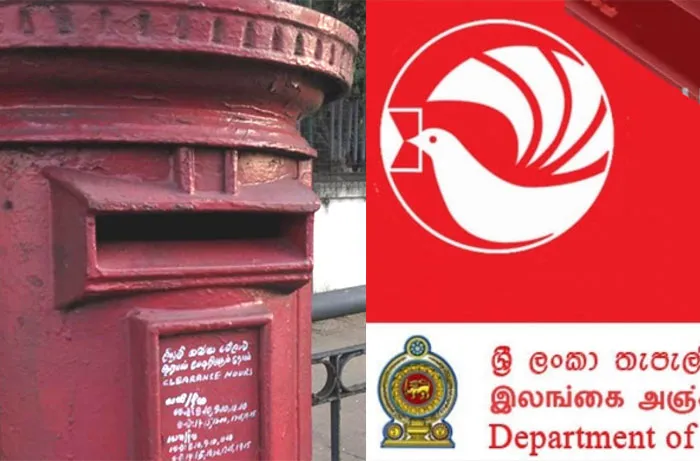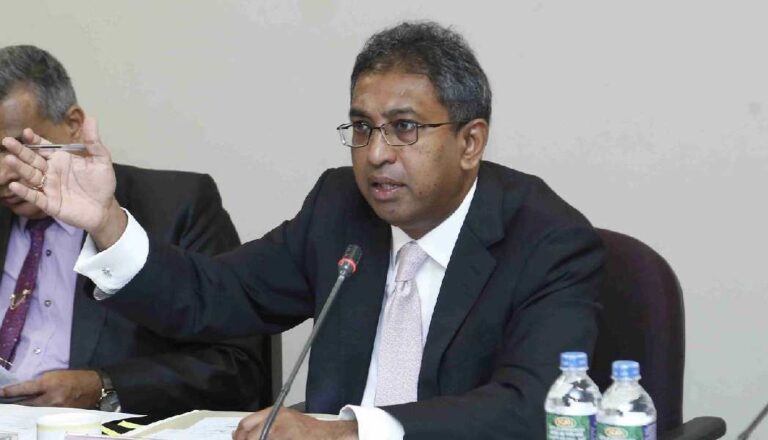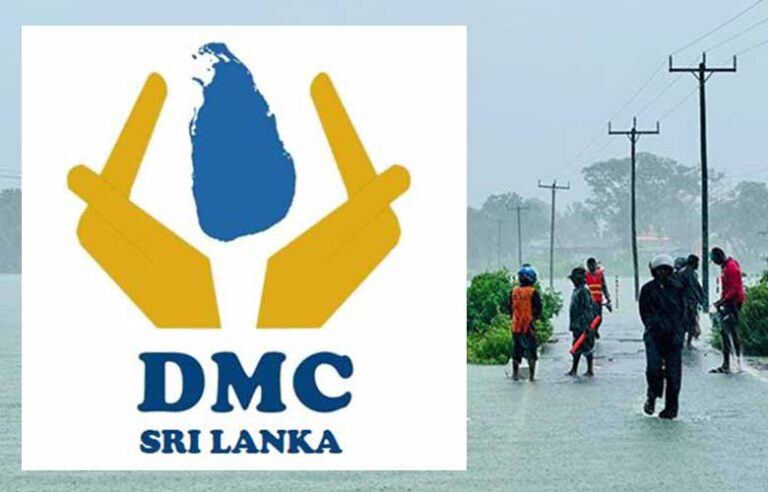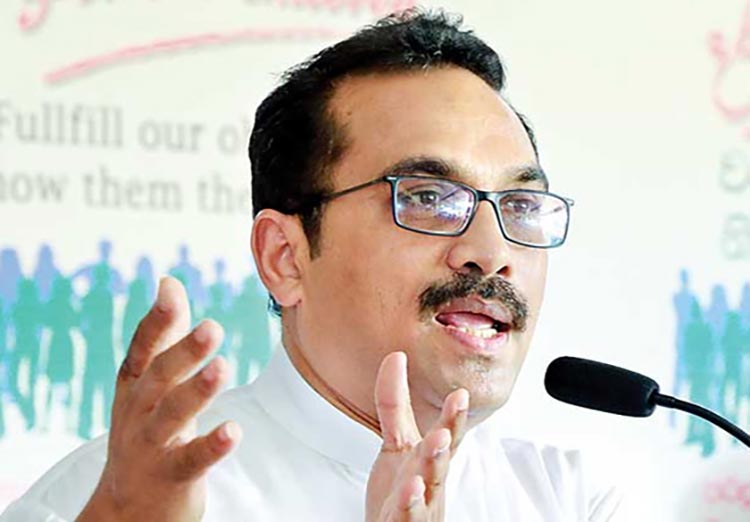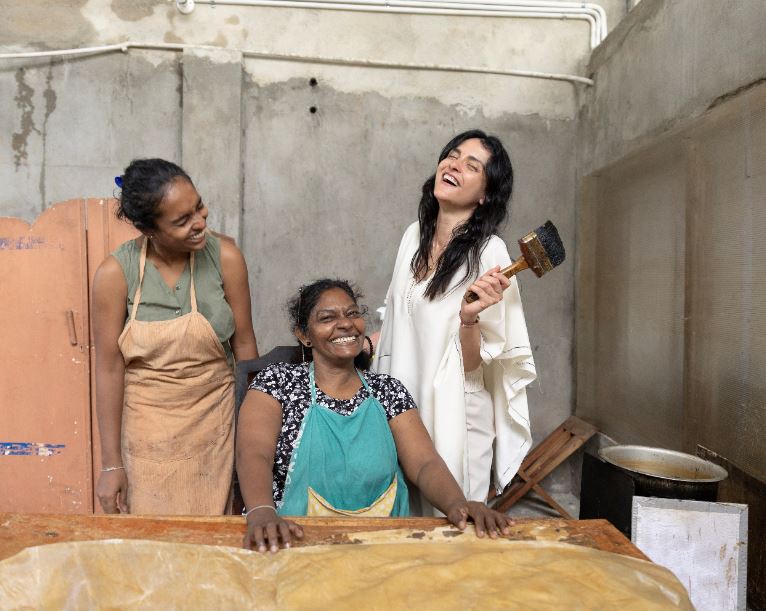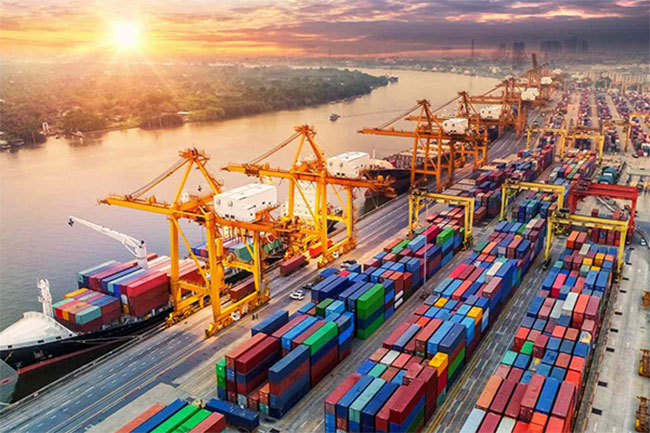October 05, Colombo (LNW): After a significant pause in hiring, the Department of Posts is set to induct 731 new personnel into the position of Postal Assistant, Grade III, within the Primary Non-Skilled Service Category.
The formal appointment letters are expected to be distributed on the October 06 at Temple Trees, with the proceedings to be officiated by the Minister of Health and Mass Media, Dr Nalinda Jayatissa.
This ceremony signifies not just a personal milestone for the recruits, but a critical turning point for the Department of Posts, which has not seen a permanent intake for this role since 2021.
The prolonged halt in hiring led to a backlog of nearly 2,000 vacancies by the close of 2024. This gap in staffing placed considerable strain on the department’s day-to-day operations, severely impacting postal services and logistics nationwide.
In light of these challenges, Minister Jayatissa submitted a proposal to the Cabinet earlier this year, seeking approval to urgently fill part of the vacant positions. On August 19, 2025, Cabinet gave the green light to recruit 1,000 new Postal Assistants.
The 731 individuals now set for permanent appointment were selected from a pool of substitute employees who had already been serving within the department and possessed the required qualifications.
Hundreds Set to Join Postal Assistant Ranks After Years-Long Recruitment Freeze
Concerns Raised Over Proposed Interest Rate Shift in Central Expressway Financing
October 05, Colombo (LNW): Dr Harsha de Silva, Chair of the Committee on Public Finance (CoPF), has raised alarm over a proposal to amend the financing terms of the Central Expressway project, warning that such a move could ultimately inflate Sri Lanka’s external borrowing costs.
Posting on X (formerly Twitter), Dr de Silva drew attention to what he described as troubling developments surrounding the LKR 226 billion infrastructure initiative, which has already faced repeated delays and mounting financial burdens due to accruing interest and stalled negotiations.
Despite the project’s recent relaunch under the administration of President Anura Kumara Dissanayake, Dr de Silva noted that critical financial arrangements remain unresolved. In particular, discussions between the government and China EXIM Bank over a revised USD 500 million loan, as well as ongoing contractual disputes with the project’s primary contractor, MCC, have yet to reach final agreement.
Of particular concern to the CoPF, Dr de Silva said, is a proposal by the Ministry of Highways to transition the loan’s existing 15-year fixed interest rate of 2.5% to a floating structure. The proposed new arrangement would introduce a variable rate, with a minimum of 2.5% and a ceiling of 3.5%, depending on changes in Chinese sovereign lending rates over time.
This shift from a fixed to a variable rate raises serious questions, he said, warning that Sri Lanka may end up exposed to higher repayment obligations if global or Chinese interest rates rise significantly in the coming years.
The CoPF has formally advised the Ministry to pursue a more balanced approach—one that would ensure parity for both sides in the event of future fluctuations in borrowing costs. The committee is seeking reassurance that any revised agreement will preserve the country’s long-term fiscal interests while safeguarding against avoidable risk exposure.
Dozens Impacted as Adverse Weather Sweeps Across Multiple Provinces
October 05, Colombo (LNW): Unsettled weather conditions have left dozens of individuals affected across several regions of Sri Lanka, with strong winds and heavy rainfall causing injury and property damage in recent days.
According to the latest situation report from the Disaster Management Centre (DMC), a total of 84 people belonging to 49 families have been impacted in five provinces: Central, North Central, Northern, Southern, and North Western.
The report highlights that four individuals sustained injuries—two in the Jaffna District and two in Kurunegala—mainly due to falling debris and wind-related incidents. While no fatalities or evacuations have been recorded, the DMC confirmed that 49 houses have suffered partial damage as a result of the adverse weather.
Nuwara Eliya was among the hardest-hit districts, with 48 residents affected by intense rainfall accompanied by lightning. In Anuradhapura, 17 people experienced disruption due to a combination of rainfall and strong winds, while Jaffna saw 14 individuals impacted by similar conditions.
In the south, a tree fall incident in Galle affected five individuals. Kurunegala, meanwhile, reported 25 people affected as gusty winds swept through the area.
Local disaster response teams have been placed on standby, and public advisories are expected to be issued if conditions deteriorate further.
Officials are urging residents in vulnerable areas to exercise caution, secure loose outdoor items, and stay indoors during periods of severe weather.
Historic Fuel Station to Be Established on Delft Island in Landmark Development
October 05, Colombo (LNW): In a significant step towards improving infrastructure and daily life for remote communities, plans are now in motion to establish the first-ever fuel station on Delft Island.
The initiative comes through a newly formalised agreement with the Ceylon Petroleum Corporation (CEYPETCO), announced by Minister of Highways, Ports and Civil Aviation Bimal Ratnayake during a public address in Jaffna.
The project, which is being rolled out in partnership with the Sri Lanka Navy, is set to drastically reduce the time and cost involved in transporting fuel to the island. At present, residents must endure a logistical challenge that takes nearly seven hours simply to deliver fuel to the island’s power generator. The new facility is expected to cut that process down to just 45 minutes, once fully operational.
In its initial phase, the CPC will allocate Rs. 50 million towards construction and setup, with further expansion planned in a second phase. The station will offer fuel at standardised national rates—matching those in Colombo—bringing much-needed price parity and accessibility to an area that has long struggled with fuel shortages and inflated costs due to transport difficulties.
“This development represents more than just a fuel station,” said Minister Ratnayake. “It symbolises our government’s commitment to inclusive progress—connecting even the most isolated communities to national development efforts.”
He underscored the broader vision behind the initiative, describing it as part of a nationwide push to bridge regional divides and strengthen social cohesion. “We are building a country where people can travel freely from Nagadeepa to Amman Kovil, not only in peace but in unity,” he said, referring to significant religious and cultural landmarks in the north.
The Minister also called on the public to support what he described as a government rooted in unity and clean governance—one that seeks to dismantle barriers, be they economic, regional, or communal.
Fatal Collision on Narammala–Kurunegala Road Claims Three Lives
October 05, Colombo (LNW): A tragic road accident in the heart of Narammala has left three people dead and three others seriously injured following a collision between a heavy lorry and a passenger bus.
The incident occurred along the busy Narammala–Kurunegala main road, a stretch frequently plagued by speeding and high traffic volumes.
Police in Narammala have launched a full investigation to determine the cause of the accident.
Electricity Tariff Hike Decision Expected Soon as PUCSL Nears Completion of Review
October 05, Colombo (LNW): Sri Lanka’s energy regulator is preparing to issue a final decision on a proposed electricity tariff increase submitted by the Ceylon Electricity Board (CEB), with the decision expected by mid-October.
The Public Utilities Commission of Sri Lanka (PUCSL) confirmed that it is in the final stages of evaluating the CEB’s request for a 6.8 per cent rise in electricity rates, a proposal formally lodged with the Commission on September 10, 2025.
As part of its statutory obligations, the PUCSL launched a series of public consultations across the country to gather citizen feedback on the proposed revision. The process began in the Eastern Province on September 18 and has since covered eight provinces, drawing responses from over 500 participants representing households, businesses, and civil society organisations.
According to PUCSL Director of Communications, Jayanath Herath, the final consultation session is scheduled to take place on 8 October in the Western Province, after which the Commission will consolidate the public’s views alongside financial and technical assessments.
The regulatory review process includes a thorough analysis of CEB’s projected power generation costs, fuel procurement expenses, operational and maintenance overheads, and tariff-derived income streams used to service outstanding debts.
Herath noted that public engagement has played a pivotal role in shaping the Commission’s deliberations, particularly in light of ongoing concerns about the rising cost of living and the burden of utility bills on both domestic consumers and small businesses.
The PUCSL’s forthcoming decision is expected to weigh the CEB’s need for financial sustainability against the broader social and economic impact of higher electricity charges. The ruling, once announced, will determine whether the proposed increase is approved in full, partially implemented, or deferred for further revision.
After 13 Years, Wasim Thajudeen’s Murder Case Reopens: New Leads, Old Suspects, Lingering Doubts
By: Ovindi Vishmika
October 05, Colombo (LNW): The long-dormant murder investigation into the death of former Havelock Sports Club rugby captain Wasim Thajudeen has once again captured the public spotlight, as fresh revelations and “breakthroughs” raise both hope and skepticism. Thajudeen’s death in May 2012, initially ruled a car accident, has come to symbolize the perilous intersection of power, crime, and impunity in Sri Lanka.
The Incident That Refused to Stay Buried
On the humid pre-dawn of 17 May 2012, Thajudeen was found inside a charred car near the Shalika Grounds in Narahenpita. The initial police report attributed the incident to a drunk-driving crash. But friends and supporters found the narrative implausible: Thajudeen was known to abstain from alcohol, and the visible damage to the vehicle seemed inconsistent with a high-impact crash.
For years, the case remained dormant, widely perceived as another instance of state negligence in high-profile deaths.
First Reinvestigations & Forensic Reversals
When the government changed in 2015 under President Maithripala Sirisena, the Thajudeen case was revived. The Criminal Investigations Department (CID) took over and submitted to court that the death was not accidental. Key findings included broken teeth, fractured pelvic bones, a pierced neck suggesting use of a sharp instrument, and deep cuts on leg muscles — all inconsistent with a traffic accident.
The CID also found contradictions between the original post-mortem report and the government analyst’s report. On 27 July 2015, the CID formally informed the Colombo Additional Magistrate that Thajudeen’s death was a homicide. In August 2015, his body was exhumed for a second post-mortem led by Dr. Ajith Tennakoon and others, which revealed missing bones in the chest and neck areas and overwhelming evidence of torture and blunt-force trauma.
In February 2016, a Colombo court officially ruled the death a murder and directed the CID to arrest suspects, signaling a new phase in one of the country’s most controversial criminal cases.
Obstacles, Cover-Ups & Political Overtones
While the legal framework was laid for prosecution, tangible progress was slow. Evidence was allegedly suppressed or lost, witnesses intimidated, and investigators themselves accused of being complicit in the cover-up.
The CID discovered that the vehicle used in the suspected abduction was a Defender jeep (WP KA 0642) linked to the Siriliya Saviya Foundation, an organization headed by Shiranthi Rajapaksa, the former First Lady. This revelation was politically explosive, as the charity had close ties to the Rajapaksa family, then at the height of their power.
At least one police officer involved in the original investigation was arrested for withholding evidence, while former Deputy Inspector General (DIG) Anura Senanayake was detained for obstructing justice. Both men died before their trials concluded. Judicial Medical Officer Prof. Ananda Samarasekera, who conducted the first autopsy and was accused of tampering with evidence, also died before facing court.
These developments fueled public suspicion that the murder and its cover-up were orchestrated or at least protected by powerful political actors.
The New Twist: ‘Kajja’ Enters the Frame
In 2025, the case took another dramatic turn. Acting Police Spokesperson Minura Senarath revealed that Anura Vidanagamage, also known as “Middeniya Kajja”, a notorious underworld figure recently shot dead along with his two children, had been identified in CCTV footage as a person who followed Thajudeen’s vehicle moments before his death.
This identification came after CID officers showed the footage to Kajja’s widow, who recognized him by his posture and chronic hip problem. Her testimony suggested that Kajja was in the second vehicle that pursued Thajudeen’s car shortly before it was found burning.
However, controversy quickly followed. Kajja’s eldest son publicly disputed the claim, asking why police had not shown the footage to other family members for verification. He also revealed that money had been transferred to his mother’s account following Kajja’s death, suggesting possible manipulation or coercion.
Adding another layer of intrigue, underworld figure “Backhoe Saman”, arrested in Indonesia and suspected of orchestrating Kajja’s killing, allegedly confessed that the murder was linked to efforts to silence witnesses connected to the Thajudeen case.
What We Know and What We Don’t
Thirteen years on, much about the Wasim Thajudeen case has been uncovered, yet many critical questions remain unanswered. What is known beyond doubt is that Thajudeen’s death was not an accident, but a carefully staged murder. Forensic evidence has confirmed that he suffered multiple blunt-force injuries, fractures, and burn marks inconsistent with a vehicular crash, proving he was tortured and killed before his body was set on fire. The investigations also revealed that a Defender jeep linked to the Siriliya Saviya Foundation, an organization headed by former First Lady Shiranthi Rajapaksa, was allegedly used in the abduction, pointing to connections that reach into the upper echelons of political power. Several police officers, including a former Deputy Inspector General, were accused of suppressing or manipulating evidence to portray the murder as an accident.
More recently, the identification of Anura Vidanagamage, also known as Middeniya Kajja, as one of the individuals following Thajudeen’s vehicle moments before his death has added a new dimension to the investigation. His widow’s testimony and the subsequent arrest of the underworld figure Backhoe Saman have strengthened suspicions of a criminal network operating behind the scenes. Yet, despite these findings, the full picture remains obscured. It is still unclear what exact role Kajja played, who ordered the killing, and what the real motive was whether it stemmed from a personal dispute, political vendetta, or an attempt to send a message to others who crossed paths with those in power.
Equally troubling is that, despite years of inquiry, no member of the alleged political network has been directly charged. Key evidence has vanished, witnesses have died or disappeared, and contradictory statements continue to cloud the truth. As the case once again gains momentum, the central questions remain painfully familiar: who killed Wasim Thajudeen, who ordered it, and will Sri Lanka’s justice system ever have the courage or independence to reveal the full truth?
Court Proceedings & the Legal Landscape
Although the courts have classified the case as a murder and directed the CID to act, indictments against alleged masterminds have yet to materialize. Political transitions from Sirisena to Gotabaya Rajapaksa and now to Anura Kumara Dissanayake’s administration have repeatedly disrupted momentum.
Under the new government, which campaigned on promises of transparency and accountability, police say investigations are continuing. Acting Police Spokesperson Minura Senarath and Justice Minister Nalinda Jayatissa both claim that authorities are pursuing fresh leads based on recent witness statements and overseas arrests.
Yet, more than a decade later, the Thajudeen family remains skeptical. “Every government promises justice,” said a relative. “But if this one fails too, there is no hope left for the future.”
The Stakes & What Must Happen Next
For many Sri Lankans, the Thajudeen case has become a litmus test for the country’s ability to deliver justice in politically sensitive crimes. It underscores the urgent need for stronger witness protection, independent forensics, and judicial transparency.
Civil society groups have urged the government to prioritize the safety of key witnesses, as Sri Lanka’s history is littered with the murders of individuals linked to major investigations. The Assistance to and Protection of Victims of Crime and Witnesses Act (2015, amended 2023) mandates protection from harm or intimidation but implementation remains weak.
If the Dissanayake administration is sincere about breaking the cycle of impunity, it must ensure that witnesses, investigators, and journalists working on this case are shielded from reprisal.
More than 13 years after that night on Park Road, the charred shell of Thajudeen’s car remains an enduring symbol of Sri Lanka’s darkest truths and its most elusive justice. Until full accountability is achieved, his death will continue to haunt the nation’s conscience.
Thunderstorms likely to persist: Heavy showers above 100 mm expected (Oct 05)
October 05, Colombo (LNW): Atmospheric conditions are favourable for thunderstorms in the evening, and therefore, general public is advised to take adequate precautions to minimise damages caused by heavy rain, strong winds and strong lightning during thundershowers, the Department of Meteorology said in its daily weather forecast today (05).
Showers or thunder showers will occur at several places in most parts of the island after 1.00 p.m.
Heavy showers above 100 mm are likely at some places in Northcentral, Eastern, Central and Uva provinces.
Marine Weather:
Condition of Rain:
Showers or thundershowers will occur at several places in the sea areas around the island in the evening or night.
Winds:
Winds will be south-westerly and wind speed will be (30-40) kmph.
State of Sea:
The sea areas around the island can be slight to moderate. Temporarily strong gusty winds and very rough seas can be expected during thundershowers.
SEVA Project Elevates Sri Lanka’s Craft Sector to Global Stage
By: Staff Writer
October 04, Colombo (LNW): Sri Lanka’s creative and craft industry has achieved a breakthrough with the launch of SEVA, a transdisciplinary cultural diplomacy project that bridges global artistry with local heritage while unlocking the island’s vast untapped artisan trade potential.
Developed under the EU–Sri Lanka Matchmaking Program, in partnership with the Export Development Board (EDB) and supported by the European Union, Cultural Relations Platform (CRP), University of the Arts London (UAL), British Council, and The Institute of Future Creations (TIFC), SEVA also carries the endorsement of the Italian Embassy in Colombo.
Spearheaded by Italian visual artist Caterina Roppo, SEVA explores the connections between art, mental health, and post-traumatic resilience within marginalised craft communities. During her residency, Roppo collaborated with renowned Sri Lankan textile designer Sonali Dharmawardena, blending contemporary art with traditional batik and textile craftsmanship.
The collaboration reached a milestone in July 2025, when the SEVA short documentary premiered at Italy’s Terrae International Film Festival, marking the first time Sri Lankan batik was showcased to an international film audience. The film’s global recognition continued with its selection for the III Salón de Videoarte Textil in Buenos Aires, Argentina, positioning Sri Lankan craftsmanship as a serious contender in the global creative economy.
This initiative comes at a crucial time when the global craft and textile market, valued at over $700 billion, is experiencing growing demand for authentic, high-quality artisan goods. Industry models such as India’s booming $222 billion textile sector projected to reach $350 billion by 2030 — demonstrate how heritage, design innovation, and strategic partnerships can transform traditional crafts into global luxury assets.
Project Lead and TIFC Co-Founder Robert Meeder said SEVA has been instrumental in “building trust and shared understanding,” proving that Sri Lanka’s creative sector can produce “world-class, socially engaged work with commercial potential.”
Artist Caterina Roppo added, “SEVA is about turning vulnerability into strength. My time in Sri Lanka showed how creativity rooted in heritage can open new market pathways, ensuring the craft sector thrives culturally and economically.”
UAL’s Hannah Middleton noted that SEVA “creates meaningful social and cultural impact while enhancing international visibility,” while Sonali Dharmawardena emphasised how the collaboration honoured local craftsmanship and expanded global trade opportunities.
With rising global demand for artisanal products, experts stress that targeted investment, design innovation, and branding could elevate Sri Lanka’s craft sector into a premium export segment, generating rural employment, empowering women and youth, and preserving traditional skills.
As SEVA illustrates, with sustained collaboration, creativity, and strategic market positioning, Sri Lanka is poised to transform its craft heritage into a global cultural and economic powerhouse.
Sri Lanka Fast-Tracks 2025-2029 Export Plan amid Global Trade Turbulence
By: Staff Writer
October 04, Colombo (LNW): Sri Lanka’s Export Development Board (EDB) is accelerating efforts to finalise the National Export Development Plan (NEDP) 2025–2029 by November, as the country seeks to strengthen trade competitiveness and reposition exports as a key engine of growth amid mounting global trade uncertainty.
Working in collaboration with the Asian Development Bank (ADB), the EDB has launched a series of nationwide consultations to shape the new plan. Between 2 and 10 October, eight focus group discussions and a technical committee meeting are being held to assess trade logistics, sectoral priorities, and competitiveness challenges. Regional validation workshops will follow before the final framework is submitted later this year.
The urgency comes against a backdrop of weakening global trade conditions. According to a recent ADB report, Sri Lanka’s economic growth is projected to slow from 5% in 2024 to 3.9% in 2025, before further easing to 3.3% in 2026, as escalating U.S. tariffs under President Donald Trump’s trade policies disrupt international markets. Additional Macro-Bond repayments, estimated at up to $250 million annually, further underscore the need to boost exports to sustain external stability.
Despite moderate progress, Sri Lanka’s export base remains narrow. The Institute of Policy Studies (IPS) noted that exports of goods and services accounted for 20.4% of GDP in 2023, with manufacturing contributing 14%. However, 77% of export revenue still comes from industrial goods—mainly apparel while agriculture represents just 22%, leaving the economy heavily exposed to sectoral shocks.
“The lack of diversification makes the export economy vulnerable,” IPS warned, highlighting overreliance on traditional sectors such as apparel, tea, and rubber.
Echoing this view, the Advocata Institute attributed Sri Lanka’s weak trade competitiveness to long-standing policy inefficiencies and structural constraints, arguing that policymakers often misread the problem as a lack of sector targeting rather than a failure to address fundamental competitiveness issues.
EDB officials said the forthcoming NEDP will draw lessons from the 2018–2022 National Export Strategy, adapting to post-crisis realities and evolving global trade dynamics.
“This initiative is central to positioning Sri Lanka as a competitive player in international markets,” said Deputy Minister of Industry and Entrepreneurship Development Chathuranga Abeysinghe, speaking at the plan’s inaugural session in Colombo.
EDB Chairman Mangala Wijesinghe emphasised the need to align national export priorities with industry realities and emerging market opportunities, while ADB Country Director Takafumi Kadono stressed the importance of collaborative engagement to ensure the framework remains both inclusive and actionable.
The 2025 Budget has identified the NEDP as a national priority, with the EDB leading the process under the Industry Ministry’s Policy-Based Lending programme.
Industry Secretary Thilaka Jayasundara said the consultations aim to pinpoint priority sectors, strengthen trade linkages, and tackle bottlenecks that hinder export competitiveness.
Once finalised, the five-year NEDP will serve as Sri Lanka’s strategic roadmap for trade-led growth, setting clear policy direction and implementation pathways to anchor economic recovery on a more diversified and resilient export base.

